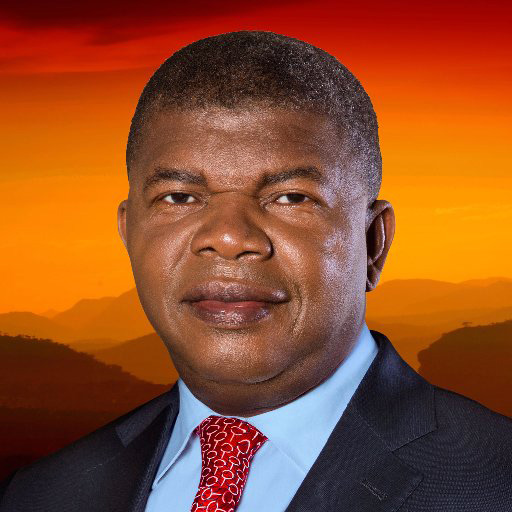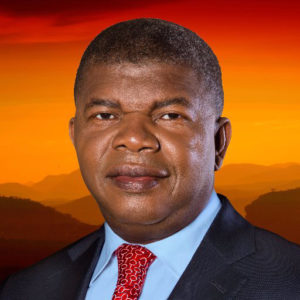

Sworn in for his second term on September 15, 2022.


João Lourenço was designated in December 2016 to occupy the party’s number 1 position in the August 2017 legislative election. In terms of the 2010 constitution, “the individual heading the national list of the political party or coalition of political parties which receives the most votes in general elections… shall be elected President of the Republic and Head of the Executive”(Article 109). As the MPLA won a majority of 150 seats, Lourenço automatically became President of Angola, succeeding José Eduardo dos Santos, in power for 38 years. Lourenço was officially sworn into office on 26 September 2017.
Lourenço grew up in a politically engaged family of ten children. His father, Sequeira João Lourenço (1923–1999), a native of Malanje, was a nurse and nationalist, who served three years of imprisonment in Portuguese Angola for illegal political activity. His mother, Josefa Gonçalves Cipriano Lourenço (1928–1998), a seamstress, was a native of Namibe. He received primary and secondary education in Bié Province and Luanda.
He is married to Ana Afonso Dias Lourenço, a Member of Parliament of the MPLA and former Minister of Planning, who held a position at the World Bank in Washington D.C. until October 2016. They have six children.
Source: https://en.wikipedia.org/wiki/Jo%C3%A3o_Louren%C3%A7o
He was awarded a scholarship in 1963 to study in the Soviet Union where he received a degree in petroleum engineering. Upon graduation in 1969, he stayed in the Soviet Union to continue his studies in Communications.
In 1974, Mr. Jose Eduardo DOS Santos was named Co-ordinator of the Foreign Affairs Department of the MPLA. He subsequently developed diplomatic activities in various African capitals to gain international support for MPLA efforts.
Following Angolan independence on November 11, 1975, he was named Minister of Foreign Affairs.
He continued to remain active in the MPLA party and contributed to the development of education, culture and reconstruction which led to his appointment as Minister of Planning in 1978.
Mr. Jose Eduardo DOS Santos became President of the Popular Republic of Angola after the death of Agostinho Neto in 1979.
President DOS Santos actively pursued national and international efforts to bring about peace in Angola. His involvement resulted in the successful withdrawal of South African forces from Angola, the repatriation of Cuban forces and the independence of Namibia. President DOS Santos led Angola in a national transition towards democracy that included both political pluralism and the establishment of a market Economy.
President DOS Santos signed the Bicesse Accords in 1991 which allowed for the country’s first democratic elections in 1992. The President and his party won the election and the results were accredited by UN and international observers; however, UNITA contested the election results and the country returned to war.
Rishi Sunak, Prime Minister of the United Kingdom (since Oct 25, 2022) Rishi Sunak (born…
Giorgia Meloni, Prime Minister of Italy (since Oct 22, 2022) Giorgia Meloni (born 15 January…
Mahamat Déby, President of Chad (since Oct 10, 2022) Mahamat Idriss Déby Itno (born 1…
William Ruto, President of Kenya (elected on Aug 9, 2022 with 50.5% of the vote)…
Gustavo Petro, President of Colombia (since Aug 7, 2022) Gustavo Francisco Petro Urrego ODB ODSC…
Bajram Begaj, President of Albania (since Jul 24, 2022) Bajram Begaj (born 20 March 1967)…
This website uses cookies.
View Comments
Sometimes the good you do, does you no good.